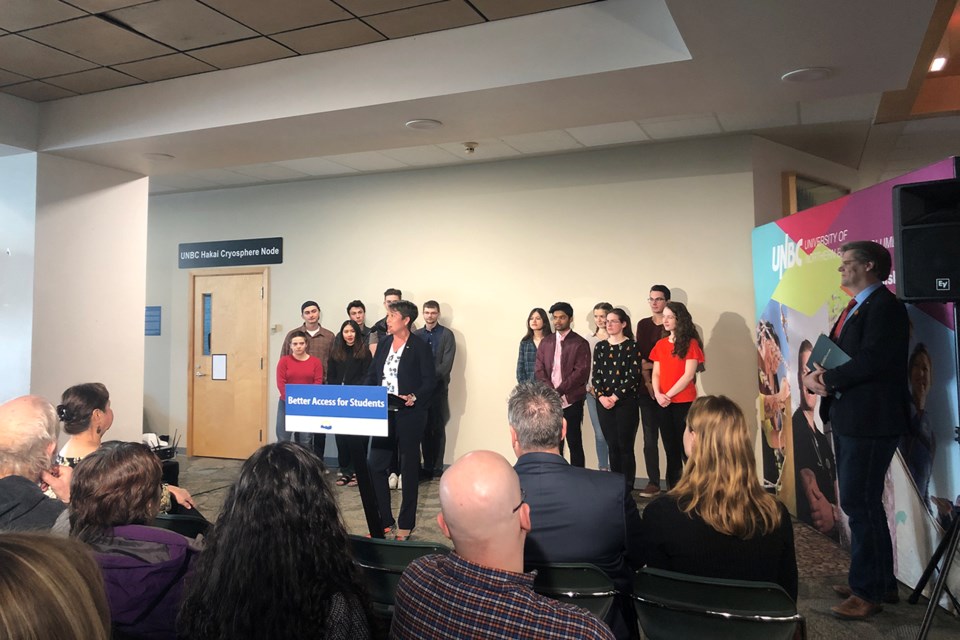The University of Northern British Columbia (UNBC) is welcoming a full civil and environmental engineering program alongside $3.5 million for new learning facilities.
Melanie Mark, B.C.'s Minister of Advanced Education, Skills and Training, made the announcement this morning (March 18) at UNBC.
“For more than a decade, students, communities and elected officials in the north have been calling for an engineering program in the region,” said Mark during the announcement. “Northern students were uprooting their lives at considerable costs and going south to finish their degrees.”
Starting in September 2019, UNBC students will start the first full civil and environmental engineering degree program in the North.
“It’s important you have the opportunity to study close to home, get your dream job, raise your family close to home and that’s what these engineering spaces are going to allow,” said Mark.
“But you can’t get your dream job without 21st-century facilities and that’s why today I am thrilled to be announcing $3.5 million in capital funding to create new engineering spaces right here at UNBC.”
The funding will help UNBC increase its use of existing classroom space and teaching laboratories, and create a centralized collaboration space for the new programs.
“This is indeed an exciting day. We always welcome funding here at UNBC, but we particularly welcome this funding,” said UNBC president, Dr. Daniel Weeks.
“We also showed the minister the added benefits of this funding, not only is it going to create this dedicated space for engineering but it’s going to do some other things for us, for example, we will be ramping up and bringing back work integrated learning and co-op across the institution.”
Following the announcement, Minister Mark participated in an exciting demonstration #cityofpg #unbc pic.twitter.com/E5U9r0wLl9
— Hanna Petersen (@hannaepeter) March 18, 2019
In January 2018, the province announced funding for new civil and environmental engineering degree programs, which will ramp up to a total of 280 additional spaces at UNBC by 2022-23, with 70 graduates per year expected by 2023.
“Here at UNBC we are provided a unique learning experience for engineering students we are fortunate enough to have faculty that know our names, value our opinions and help make our ideas realities,” said second-year environmental engineering student Lucia Dekleer.
“We are eager to get into the field and have the experience to do so. Like you said learn in the north, stay in the north, I can tell you a whole lot of people are going to want to stay in the north now.”
About 30,000 engineers are currently working in B.C., and nearly 12,000 job openings are forecasted over the next 10 years.
Of those projected openings, about 7,300 of them will be to replace retiring engineers.
“Thank you to the students that are going to stay here because we need you to stay here, we need you to raise your families here and we know there are tremendous economic opportunities for the engineers that will graduate right here at UNBC as civil and environmental engineers,” added Mark.





